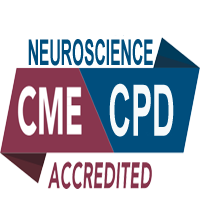
Sushil Razdan
Acharya Shri Chander College of Medical Sciences, India.
Title: Iatrogenic Hypercalcemic Encephalopathy due to Hypervitaminosis D – A Case Series.
Biography
Biography: Sushil Razdan
Abstract
Vitamin D is increasingly recognized to have beneficial effects in several inflammatory conditions and there is some evidence to suggest that it is associated with a reduced risk of various internal malignancies, aside from its classic physiologic effects on calcium metabolism and bone homeostasis. Although vitamin D toxicity is thought to be extremely rare, and an extremely rare cause of hypercalcemia, food and nutrition board guidelines specify 2000IU as highest vitamin D intake that healthy adults can consume daily without risking hypercalcemia. For many people the word “vitamin” implies something that is beneficial, essential and not potentially poisonous. But,Vitamin D is toxic in large doses and sporadic reports of vitamin D toxicity exist in literature. We report a case series of fifteen patients with symptomatic hypercalcemia in whom toxicity occurred due to excessive administration of vitamin D by oral and parenteral route. The most frequently noted clinical manifestations in these patients was altered sensorium. In the present study we report a case series of 15 patients, nine women and six men, aged between 42–85 years who presented to the Department of Medicine, Acharya Shri Chander College of Medical Sciences and Hospital, Jammu, Jammu and Kashmir between December 2009 and September 2011. All patients were residents of Jammu and Kashmir. All the 15 patients had symptoms attributable to hypercalcemia with elevated serum calcium and serum 25-hydroxy vitamin D3 levels. All the 15 patients were suffering form hypervitaminosis D

